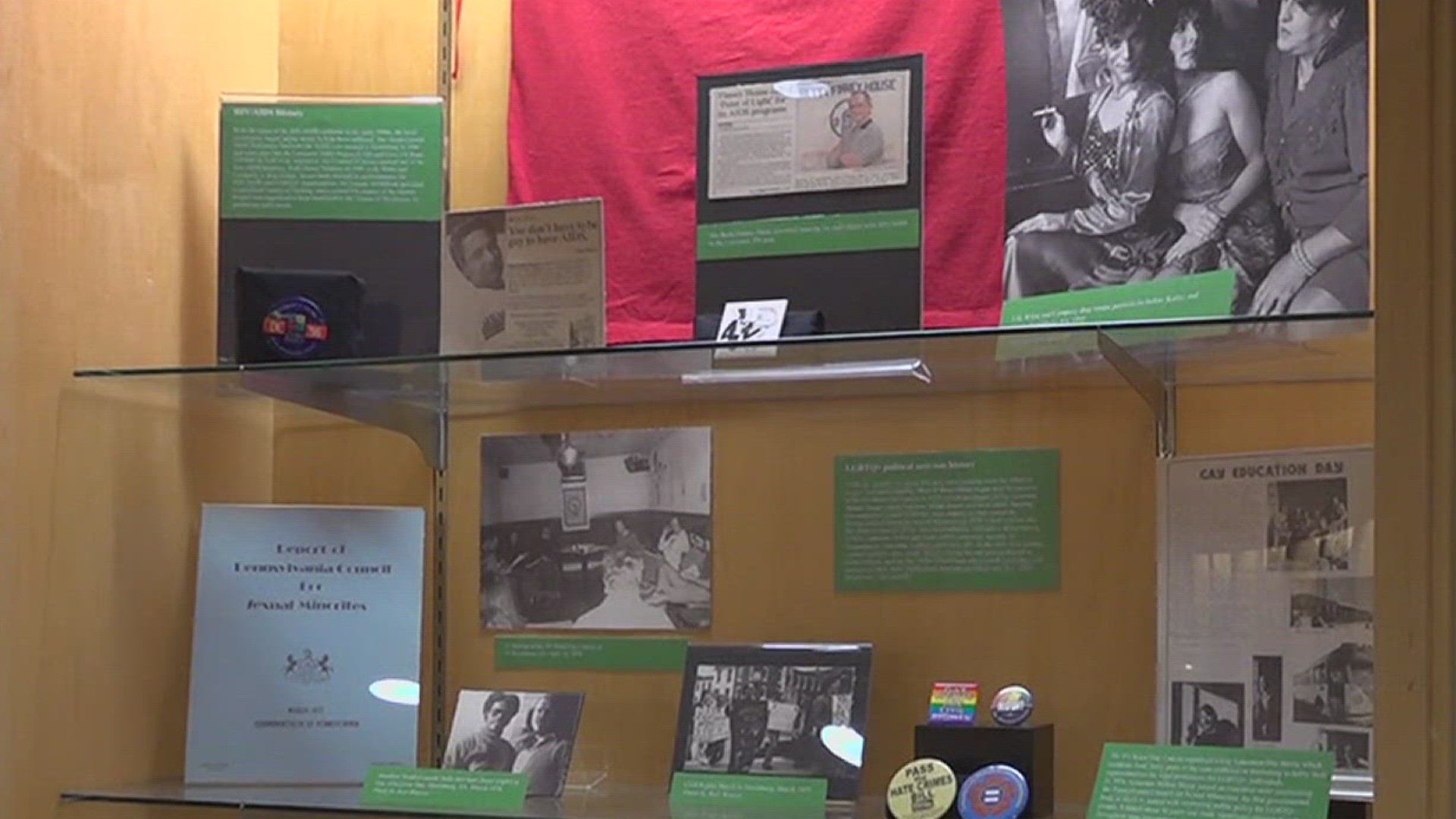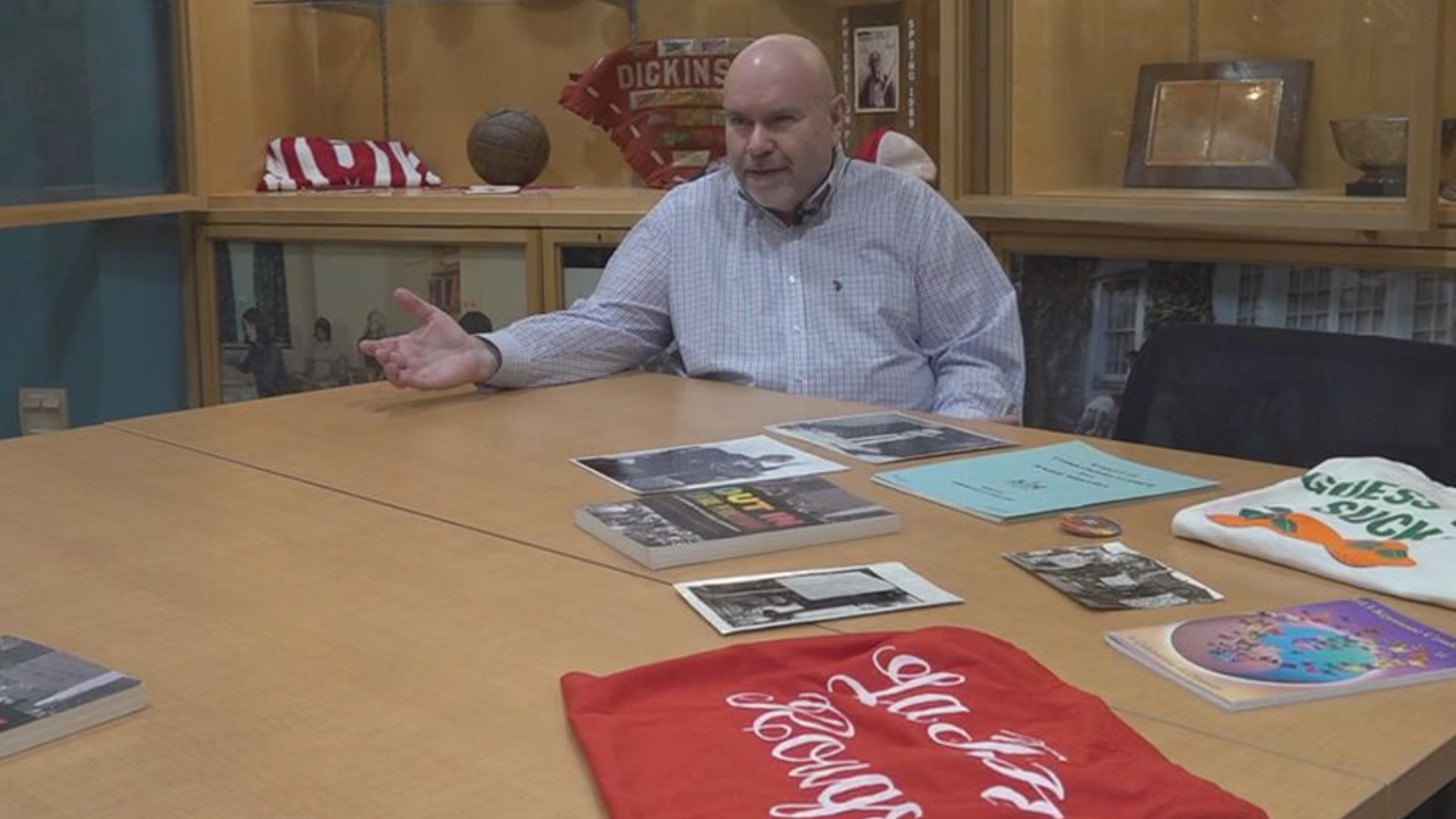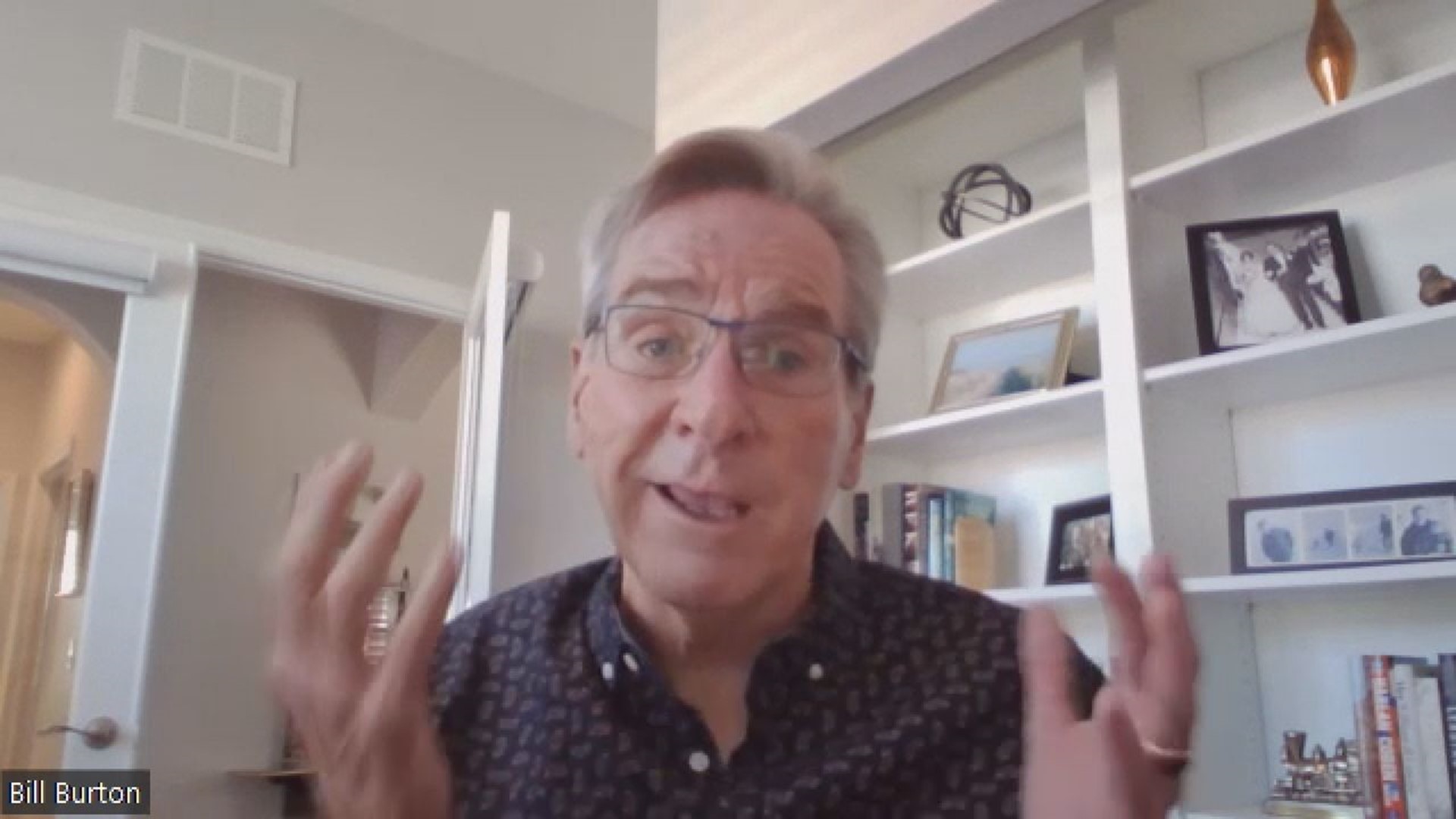PENNSYLVANIA, USA — There are countless records of how the LGBTQ+ civil rights movement progressed in urban areas, but few accounts focus on gay communities in rural parts of the nation.
Two authors want to tell the Keystone State’s story.
December’s FOX43 Book Club read dives into the history of the movement in Pennsylvania.
Author William (Bill) Burton and activist Barry Loveland teamed up with the LGBT Center of Central Pennsylvania History Project to create "Out in Central Pennsylvania: The History of an LGBTQ Community."
“Nothing was written about what happened in small-town America, in the hinterlands," Burton said. "There were books written about coming out, like in the South, but most of those were just coming out stories. It wasn’t about how the gay network formed in Louisiana or Alabama. It was mostly just coming out stories and the difficulties they shared. So this is what made this book different, because it’s about how a community developed. There are individual stories in it, but it’s really how this community developed.”
“What we found is there really wasn’t anyone doing this work between Philadelphia and Pittsburgh,” Loveland said.
There were also no support networks for LGBTQ+ youth in the midstate, leaving them to fend for themselves in a part of the Commonwealth that was not often welcoming to those who did not identify as heterosexual or cisgender. Loveland helped found a group, now known as Common Roads, to give these children a safe outlet.
"(The youth program) has really saved a lot of youth, literally saved their lives; I mean, many of the youth have come back and said that if it wasn’t for the group, I would have jumped off the bridge, or I would have just committed suicide,” Loveland said.
Burton and Loveland also listened to the lived experiences of rural Pennsylvania's gay community of all ages.
“Many of the people who were interviewed actually cried in telling their stories, because of really reliving this traumatic event that really affected their lives so drastically, and for many of them, they hadn’t thought about it in 30 years,” Loveland recalled.
Through oral histories and preserved artifacts, the contrast between LGBTQ+ rights movements in urban and rural areas became clear.
“They had no gay neighborhoods, they had no laws to protect them; it was amazing how they even formed their social networks," Burton said. "It was such a different experience from a big, urban environment."
This is part of the reason LGBTQ+ individuals in central Pennsylvania had difficulties creating a community.
“And that’s why this book is so important, because a lot of focus has been on the huge urban areas and metropolitan areas, and in those kinds of settings the communities are typically more closely knit in terms of their physical location and there’s neighborhoods that are specifically more prevalent in terms of how many people live there versus being scattered all over central Pennsylvania," Loveland said. "Here, there’s just no cohesive geographic location where people can walk out their door and walk to all their neighbors and know that there are lots and lots of gay neighbors or LGBTQ neighbors.”
For someone who had been living in gay neighborhoods in cities across the country, Burton was shocked by the lack of community and displays of discrimination in the Keystone State.
“I was just blown away, and I was blown away because I realized I had been living in a bubble,” he said.
“I could walk out my door and I had gay neighbors and there were gay restaurants, you know, I didn’t have to fish around to find a network.”
And while protections for LGBTQ+ people have come leaps and bounds in the past 60 years, there is still work to be done. Even today, there is no statewide anti-discrimination law in Pennsylvania.
“You can get married in Pennsylvania, but in a certain town, you can get fired the next day for being gay,” Burton said.
Loveland and Burton talk more about their experiences and the history of the LGBTQ+ movement in central Pennsylvania in the full interviews below.
Barry Loveland
Bill Burton
To lean more about the Central Pennsylvania LGBT Center and its work on this history project, click here.
Anyone interested in joining the FOX43 Book Club's discussion of "Out in Central Pennsylvania: The History of an LGBTQ Community" can join the Facebook Live at 10 a.m. on Dec. 28 on the FOX43 Book Club Facebook group.



